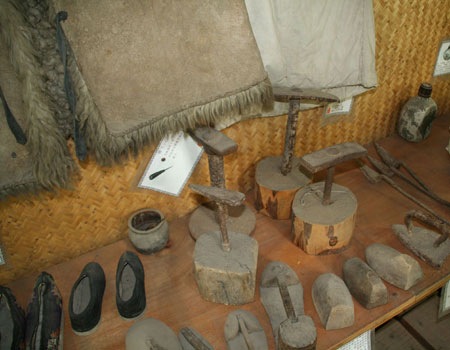Every morning, a man strolls around a lake in Xiaotangshan in the northern suburbs of Beijing, where he hears the geese quacking, breathes in the scent of the grass and soil, and hums a tune to himself.
His walk will invariably end in a wooden house on the lake, better known as "the Farm Tools Exhibition Hall" built by erstwhile residents of Wali Village, now the site of some main Olympic venues.
"The hall will be part of the Olympic-Wali Native Land Museum," says Yang Delu, 55, the founder of the planned museum.
More than 500 items are on display, all showing their age. The oldest piece of pottery is over 300 years old, according to Yang. Yang said he had used it to help his mother cooking when he was a child. "My mother was good at making cakes with wild vegetable and corn. They're my favorite."
Yang moved to Xiaotangshan in Changping District six years ago from Wali village in north-west Chaoyang District.
The decision to relocate came for Yang and other Wali villagers on the night of July 13 in 2001, when they celebrated Beijing's winning bid to host the 2008 Games.

Wooden shoemaking moulds and tools are seen in this picture taken on April 24, 2008, in the Farm Tools Exhibition Hall in Xiaotangshan, Changping District, Beijing. The hall will be part of the Olympic-Wali Native Land Museum to be built by Yang Delu, a former resident of Wali Village.
The Wali Village was a designated site for the construction of Olympic National Park. More than 10,000 residents would make way for Olympic venues.